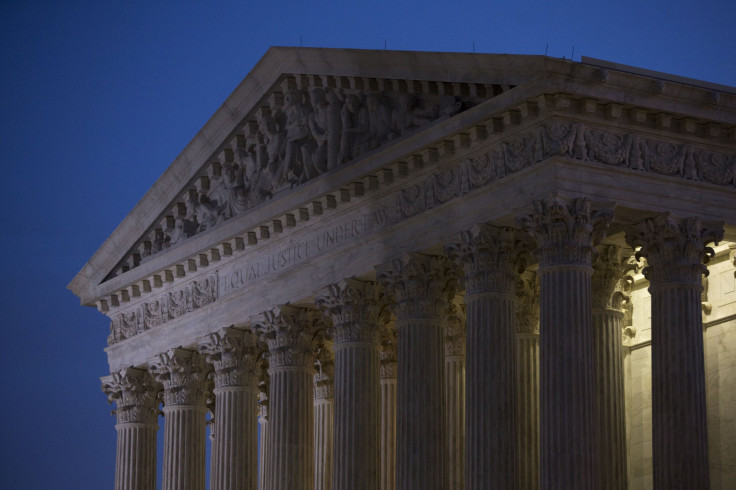Future Of The Supreme Court And Its Impact On Role of Corporations

When corporations are empowered to fix the collective problems traditionally solved by government intervention, the power to define morality and social policy is given to an elite group of corporate owners and managers. The Supreme Court has magnified this problem by giving corporations a First Amendment right to thwart democratically-made decisions regarding social good. The Court decided the cases setting this precedent with a narrow majority, making the appointment of the next Justice pivotal in determining the role that corporations play in defining American values.
The Purpose of a Corporation
Corporations receive a panoply of rights and benefits from the state in which they incorporate. Lawmakers, scholars, and the public have long debated the proper purpose for these state creations. Traditional corporate theory argues that corporations are designed to pursue profit for shareholders and that corporate managers should not put their personal ambitions – either for monetary gain or for the advancement of a social purpose – over the monetary interests of shareholders. The corporate social responsibility movement, which arose during the 1960s and has since evolved into a variety of movements today, challenges this profit maximization view. Adherents argue that corporations should strive to be moral citizens who value the greater social good as well as shareholder profit. In practice, the two sides have largely reconciled as corporate managers can justify pursuing virtually any social cause – such as environmental protection or LGBTQ rights – by pointing to demand by consumers and potential employees for ethical corporate behavior. Thus, the pursuit of social good is often a legitimate strategy for maximizing corporate profits.
Partisan politics and legislative gridlock have intensified popular pressure for corporate morality. There appears to be a loss of faith in political institutions, with society now turning to corporations to fix the social ills that the democratic process cannot – or will not – address. For example, there is overwhelming support for paid parental leave in this country. In every other Western nation, this social goal is achieved by legal mandate, but despite broad support, the federal government has failed to deliver. Instead, consumers and employees pressure corporations to voluntarily offer paid leave. Other corporations are now using their influence to assume the coercive power usually reserved for the state, with Microsoft recently announcing that it will require its contractors to provide paid paternal leave.
The Danger of Corporations Addressing Social Problems
One could argue that the parental leave example proves that the private sector should assume the role of social arbiter, but assigning corporations the task of correcting social ills comes with its own problems. First, such solutions are piecemeal, tending to provide fixes only for those with the most market influence.
More importantly, the Constitution protects citizens from governmental overreach into our most personal decisions, such as family planning, sexual relations, and religious exercise. These Constitutional protections, however, do not apply to corporations using their power to coerce individuals under their economic control into compliance with a social norm. For example, a majority of the Justices rejected the Affordable Care Act’s mandate to purchase health insurance as an exercise of Congress’s Commerce Clause power in part due to fears that it could lead to a government mandate to purchase vegetables. By contrast, employees of the coworking start-up We Work have no legal recourse in response to the company’s recent announcement that it will pursue its environmental sustainability goals by requiring its employees to eat vegetarian if they wish to seek reimbursement for corporate meals.
Antidiscrimination laws and labor protections have historically shielded workers and consumers from inequitable corporate policies. But one such democratically imposed protection – an employee’s right to contraceptive coverage – was gutted by the Supreme Court in Hobby Lobby on the grounds that corporate owners can impose their religious moral beliefs on employees, even when contrary to the democratic process. In the more recent Masterpiece Cakeshop case, the Court failed to resolve a similar corporate challenge to an antidiscrimination law protecting consumers, meaning the issue will undoubtedly come before the Court again. These claims highlight a danger inherent in giving corporations the power to pursue social goals: Corporate morality gives an elite group of people - corporate owners and managers - the power to decide what is good for society.
Business owners will likely continue to use the First Amendment to challenge legal protections for employees and minority groups. One Oregon employer is currently being sued for requiring a Native American employee to attend mandatory Bible study sessions as a condition of employment. What should be a straightforward case of Title VII religious discrimination could turn into another test case, asking the Court to hold that the First Amendment protects an employer’s right to impose his values on his employees. The new Justice replacing Justice Kennedy’s swing vote will likely determine the outcome.
Catherine Hardee is an Assistant Professor of Law at California Western School of Law in San Diego.
© Copyright IBTimes 2025. All rights reserved.





















